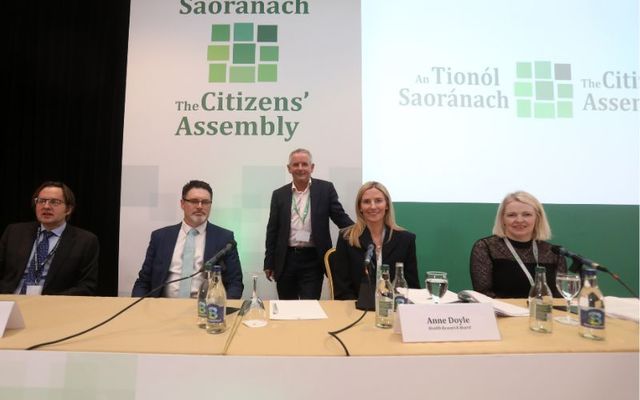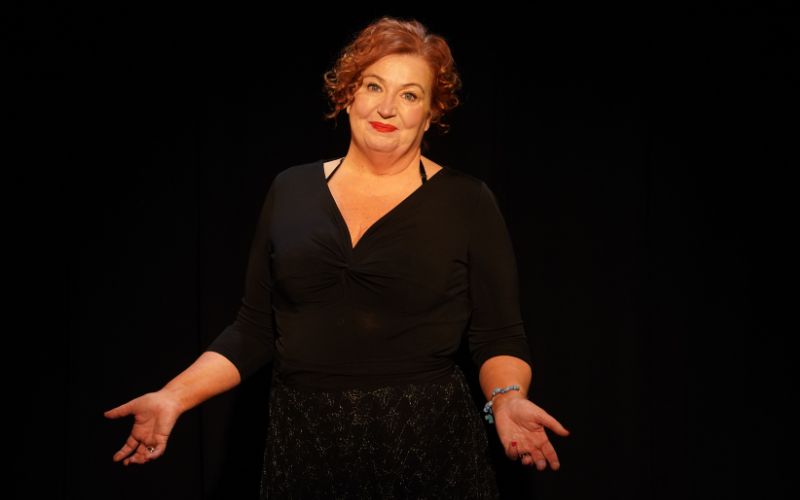The Irish government has created a Citizens' Assembly (CA) on Drugs Use to examine the practical policies that Ireland could implement to substantially decrease the negative effects of illegal drugs on individuals, families, neighborhoods, and the greater Irish society.
Comprising of 100 citizens randomly selected, it held its first meeting last week, on April 16, chaired by Paul Reid, the former boss of the Health Service Executive (HSE), and the person who chartered the course for the country during the pandemic.
“It’s not everyday in our lives that we have the opportunity to make a difference on such a key issue for society.”- @paulreiddublin pic.twitter.com/SCJWKcSFoj
— The Citizens' Assembly (@CitizAssembly) April 15, 2023
The background to the CA paints a sobering picture. Since data were initially gathered, about 20 years ago, there has been an increase in the use of illegal substances in Ireland. The proportion of respondents aged 15 to 64 who reported using any illegal substance in their lifetime to the Health Research Board has increased from 18 percent in 2002/03 to 31 percent in the last survey taken in 2019/20.
Additionally, according to a UN report, we are the fourth highest consumers of cocaine in the world by head of population, while the HSE has identified significant increases in cocaine use among females aged 15-24. The HSE also reports a substantial increase in psychiatric hospital admissions due to cocaine or cannabis use.
The establishment of the CA was universally welcomed across the political spectrum, allowing as it does a grown-up conversation to take place around a subject that has touched on practically every town, village, and street in the country.
It’s an opportunity for individuals to tell their stories and for communities to get the chance to explain how drugs have an influence and impact on a wide range of concerns, including poverty, intimidation, gang feuds, family breakdowns, and mental health. It’s also a chance for the state and society generally to look at alternative approaches in order to respond far more effectively to the problems caused by illicit drug use, because clearly what we are doing at the moment is not working.
The first sitting of the CA was about setting the scene, and former Dublin GAA star Philly McMahon told a deeply personal story about his brother John who died at the age of 29, having struggled for well over a decade with addiction associated with his schizophrenia.
McMahon now does a lot of outreach work in prisons and has in the past highlighted the way that adverse childhood experiences, whether from poverty, abuse or mental health problems, act as predictors to a life of addiction, with drugs essentially being a way of coping with the traumas that they have suffered.
This is an issue that affects so many people across ??. #CADrugsUse needs to take a person-centred approach. @sharonlambert0, @PaulineMcKeown3, Andy O’Hara from @myuisce & @PhillyMcMahon speak about the individual & community impacts. Thanks to @DearbhailDibs for moderating. pic.twitter.com/xptv8a9hJM
— The Citizens' Assembly (@CitizAssembly) April 15, 2023
Of course, drug problems are not just a problem affecting individual addicts. In Ireland, entire communities are plagued by issues like public drug dealing, the accessibility of drugs, the normalization of drug use, and a lack of or inadequacy of public services. When playgrounds, parks, and recreational spaces are commandeered by the drug trade and streets turn into no-go zones after dark, you know you have a big problem.
No surprise then that various government reports have found that communities with high levels of deprivation are disproportionately impacted by the negative effects of drug use activities in their local area. They are also the localities, especially in inner city areas where intimidation is rife.
This is where the gardai come in, with their members being on the front line in relation to the war on drugs. The best that can be said is that they have helped to partly contain the problem.
They have had notable success. For instance, the Gilligan gang that ordered the murder of journalist Veronica Guerin in 1996 was brought down through a mixture of police work and the newly formed Criminal Asset Bureau that targeted the finances of criminals. But no sooner is one criminal put behind bars than another takes their place.
The pervasiveness of the drug problem and the drug gangs throughout Irish society was demonstrated last weekend when a garda was arrested after she was allegedly caught in possession of cocaine at Dublin Airport. Then the body that acts as watchdog over the gardai, the GSOC, was rocked when one of its senior investigators resigned when it was revealed that he allegedly attended a party where Gerard “The Monk” Hutch was also in attendance.
This after Hutch, a kingpin in the drug trade, was cleared by the Special Criminal Court of taking part in the murder of David Byrne at Dublin’s Regency Hotel in 2016. Government ministers were said to be “shocked” at the revelations and the gardai have launched an investigation.
One of the most disturbing aspects of the modus operandi of the drug gangs is their use of kids to transport contraband, and the blackmailing of families to pay for drug debts racked up by family members. This drug debt intimidation is evident across the country but the extent of it is hard to quantify as it is underreported by the victims who live in fear as arson, violence, and bombing property are commonly used in connection with drug-related terror.
The abduction and murder of Keane Mulready-Woods, a 17-year-old from Drogheda, in January 2020 and the dismemberment of his body underlined the ferocity, recklessness, and depravity that gangs will descend to.
The CA will have access to the latest statistics and analysis and will follow the same issues discussed worldwide. So, for instance, the question will arise as to whether we as a society should look at the drug problem not as a criminal justice issue but as a health issue and classify them according to the harm they do.
Under this line of categorization, there would be loud cries of hypocrisy considering the impacts that alcohol has on society and the fact that it is legal and the government rakes in millions on taxation on that product while cannabis, which has a lot less damaging impact socially, is classified as illegal.
One of the other main issues the CA will deal with it is the argument of decriminalization versus legalization. Experts from various countries such as Portugal that have introduced different drug regimens will be interrogated by the CA as they review evidence about what works in other countries.
Although differing legal frameworks mean direct comparisons will be difficult to make, the goal will be to identify factors that can reduce the demand for drugs, restrict supply, and support drug users toward recovery.
The CA works because it involves a representative sample of the population, ensuring that diverse voices and perspectives are heard. Consequently, it is hoped that any proposals on the drug problem will be well-informed and representative of public values and interests. It is a challenging task, but an important one.
*This column first appeared in the April 26 edition of the weekly Irish Voice newspaper, sister publication to IrishCentral. Michael O'Dowd is brothers with Niall O'Dowd, founder of the Irish Voice and IrishCentral.




Comments